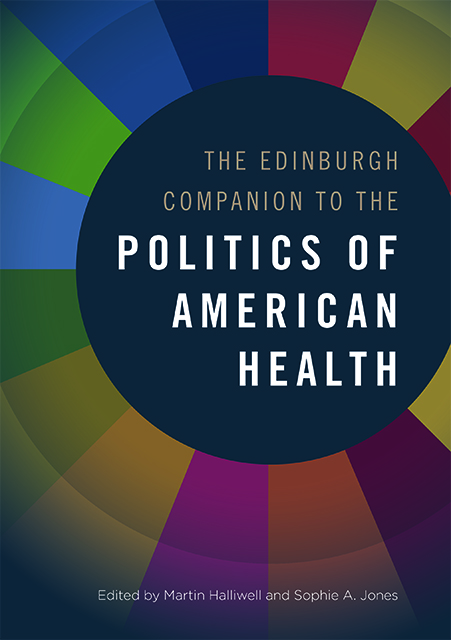Book contents
- Frontmatter
- List of Contents
- Notes on Contributors
- Introduction: The Political Landscapes of American Health, 1945–2020
- I Geography, Community and American Health
- II Critical Health Conditions: Debates and Histories
- III The Politics of Children's Health
- IV The Institutional Matrix of Health Care
- V The White House, Congress and Health Reform
- VI Justice, Ethics and American Health
- VII Public Health and Global Health
- General Bibliography
- Index
17 - Health Activism in the 1960s and the Community Health Center System
Published online by Cambridge University Press: 12 August 2023
- Frontmatter
- List of Contents
- Notes on Contributors
- Introduction: The Political Landscapes of American Health, 1945–2020
- I Geography, Community and American Health
- II Critical Health Conditions: Debates and Histories
- III The Politics of Children's Health
- IV The Institutional Matrix of Health Care
- V The White House, Congress and Health Reform
- VI Justice, Ethics and American Health
- VII Public Health and Global Health
- General Bibliography
- Index
Summary
In the conventional narrative of the American Civil Rights Movement the issue of health care is rarely, if ever, mentioned. Fights over school desegregation, voting rights and access to public facilities are usually at the fore of any discussion of the movement for African American rights. If anything, the health care initiatives of the Great Society – most notably, Medicare and Medicaid – are viewed as only tangentially, if at all, related to the Black Freedom Movement. Access to health care, however, was a major focus of the movement, as organizations as diverse as the National Association for the Advancement of Colored People (NAACP) and the Black Panthers viewed health care as a human right and worked to both desegregate the existing health care system and greatly improve access to health care for poor and minority populations, often through new and creative means.
What is sometimes referred to as the ‘medical civil rights movement’ paralleled, in many ways, the better well-known aspects of the freedom struggles of the 1950s and 1960s. As in the traditional movement, change came first from a small number of committed individuals, usually physicians, to challenge medical segregation and discrimination. Aided by the NAACP, they brought lawsuits against discriminatory practices by hospitals and medical societies, culminating in the US Supreme Court's Simkins v. Cone decision in 1963, the medical equivalent of the Brown decision, ordering equal access to hospitals for African American patients and medical professionals. As civil rights protestors took to the streets, so did those in the medical movement, picketing the American Medical Association's annual meeting, demanding that it drop its discriminatory policies. Finally, like those in the mainstream movement, leaders of the medical civil rights movement realized that, even as victories over legal segregation were won, the battles for equality remained, and that these fights – against poverty and systemic racism – would continue. This chapter focuses on the impact of the medical civil rights movement on community health, including access to affordable health care for all Americans, regardless of their race or socioeconomic status – a crusade that continues to this day.
The most influential organizations of the medical civil rights movement were the National Medical Association (NMA) and the Medical Committee for Human Rights (MCHR).
- Type
- Chapter
- Information
- The Edinburgh Companion to the Politics of American Health , pp. 289 - 305Publisher: Edinburgh University PressPrint publication year: 2022



